home
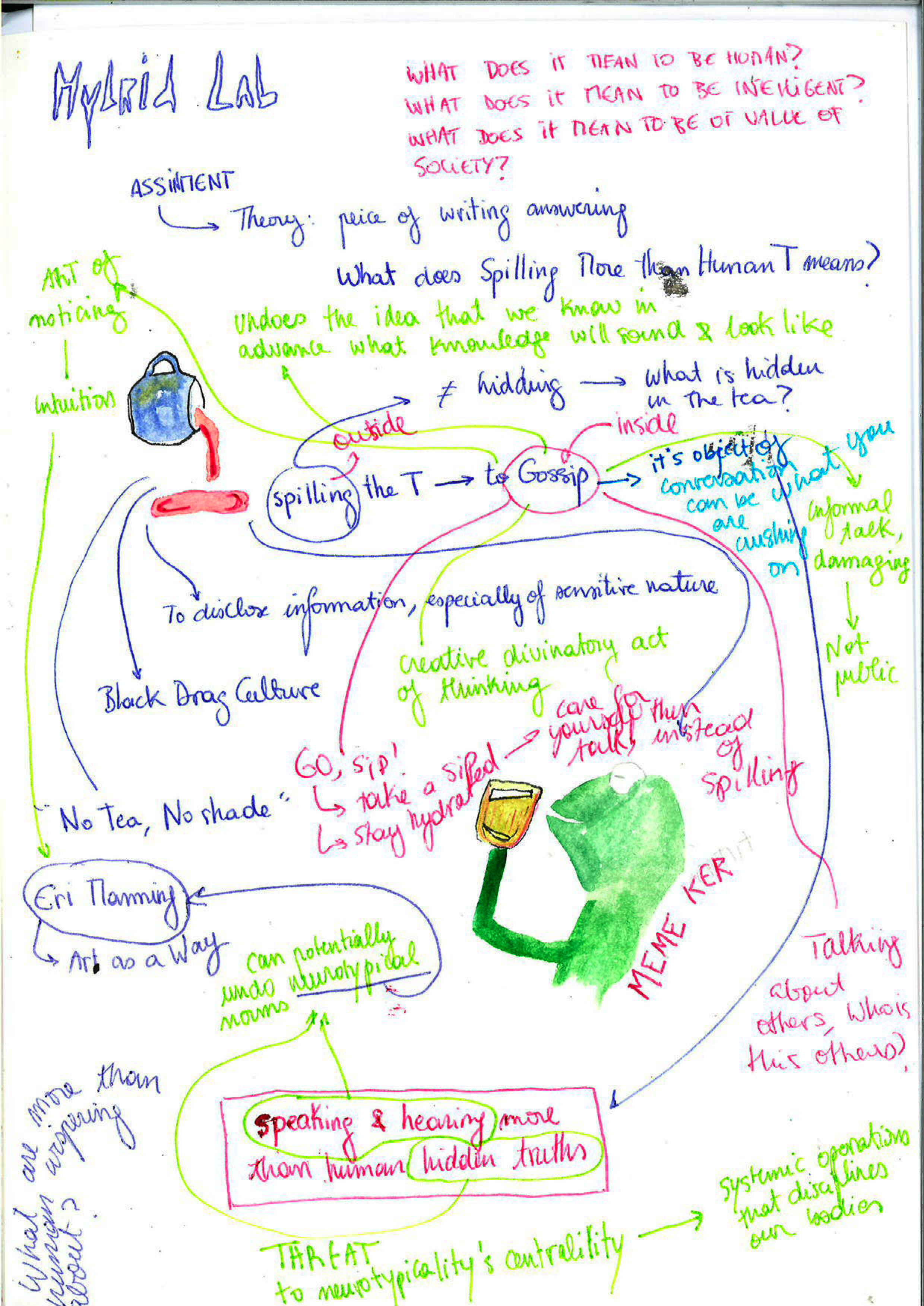
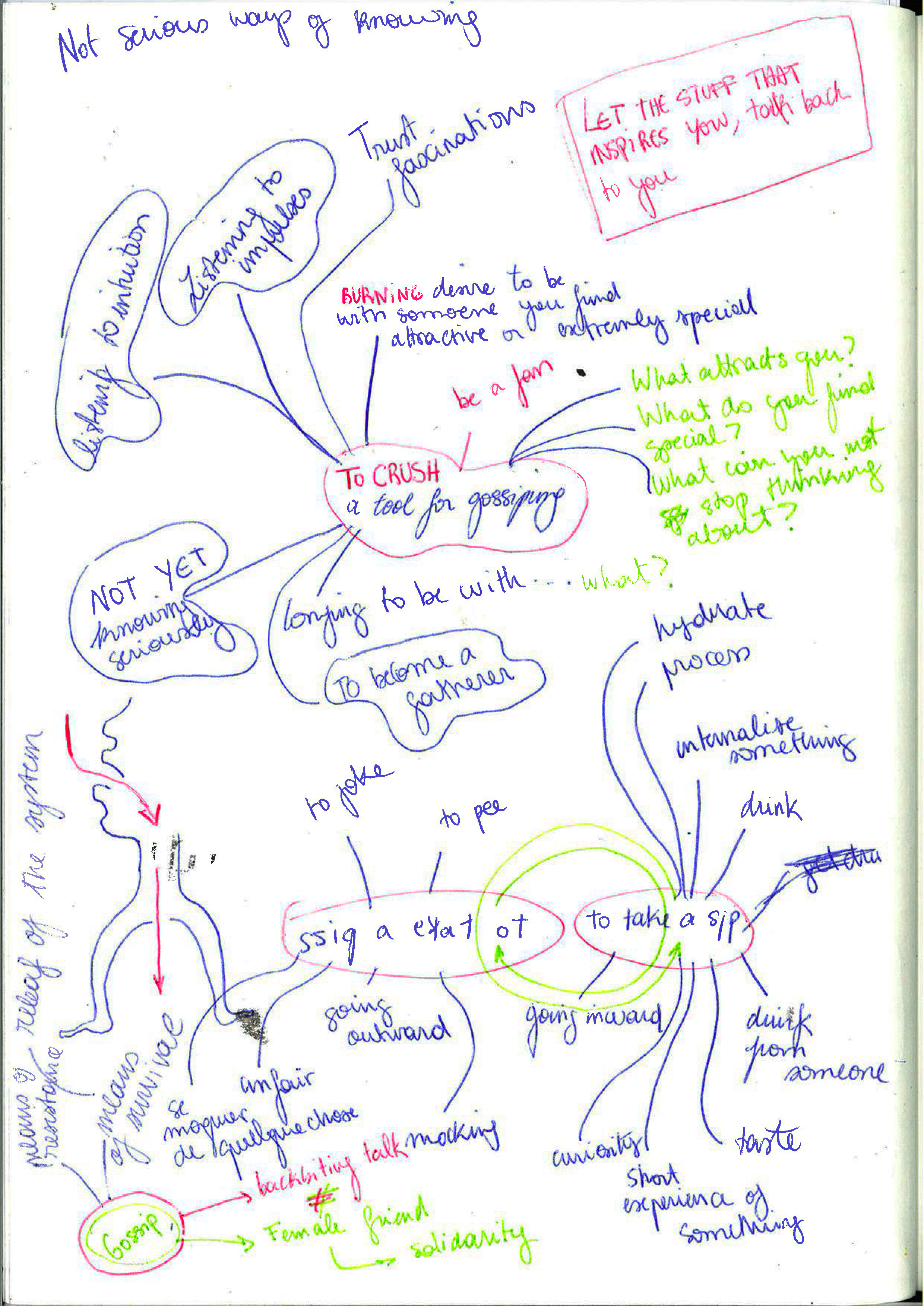
Gossip is a necessary utensil when it comes to study in order to validate different ways of sharing information and disinvest from narratives of authenticity and logic.
This communicative tool is a form of making accessible, sharing and repurposing information especially for those who are excluded from media platforms, politics or educational systems.
Gossip stimulates social interactions, it allows for comparison, self-reflection through the examination of moral decisions. It is necessary for healing justice, firstly because gossip is a form of resistance, sometimes the only source of power left some communities have against their oppressors. It builds collectivity through sharing lifesaving information.
The #metoo movement shows the power gossip holds in the area of digital media serveing to hold accountable those who committed sexual harassment and rape. Gossip is cathartic, powerful and consciousness-raising.
This utensil is also a form of exploring narratives. Since gossiping is not about truths it can take the form of poetic intervention, imagining what could have been? How would this or that senario look like then? It is a tool to desorient narratives.
(Her)story
But why is Gossip nowadays used as a form of malicious talk, attention seeking or considered superficial ?
Let’s look back to the etymology of the word:
Gossip stands for God + sibb (=a relative), the godsibb/gossip used to mean godparent. The word evolved into friend of the family, usually present at births, eventually gossip got generalized into meaning female friend. It is important to note that in the Europe of middle ages women were powerful, they were often represented standing up against their husbands. Women had very strong bonds with each other since their life and activities were mainly collective, supporting each other at birth, surrounding each other while sewing, washing their clothes etc… However, in the 16th century, as Silvia Federici describes in the “Witch…..” women's position in society started to weaken by shaming men who were dominated by their wifes and by removing women from public life. Simultaneously, the meaning of gossip took a turn and started being used as backbiting talk, denigrating female solidarity. In 1567, Scotland, the first design of the repugnant ‘gossip bridle’ was made. Men were at war against women, they knew Gossip is a weaponized form of intimacy and responded with nasty, violent and humiliating tools of torture.

Access
Community building
Self-empowerment
Speculation

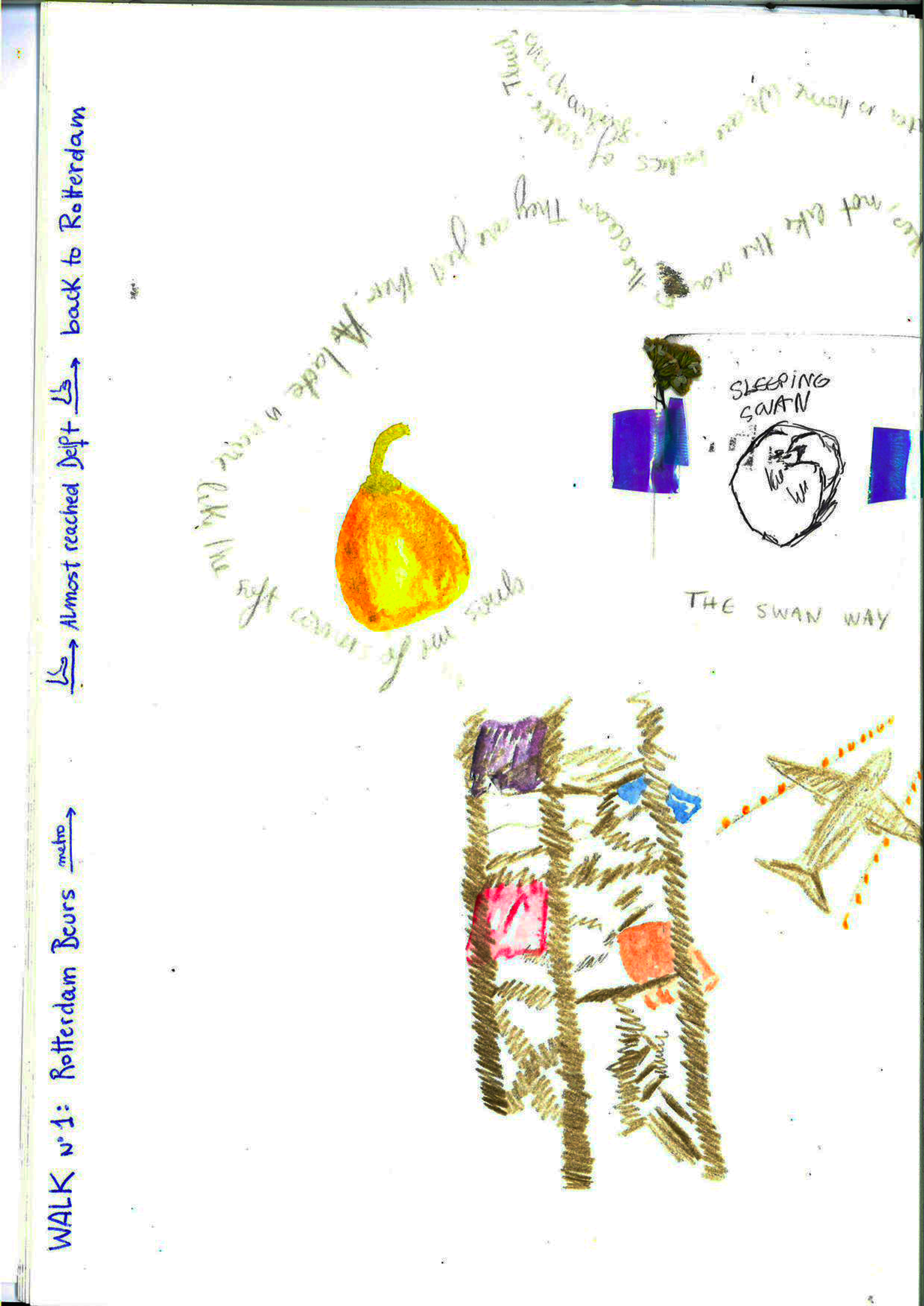
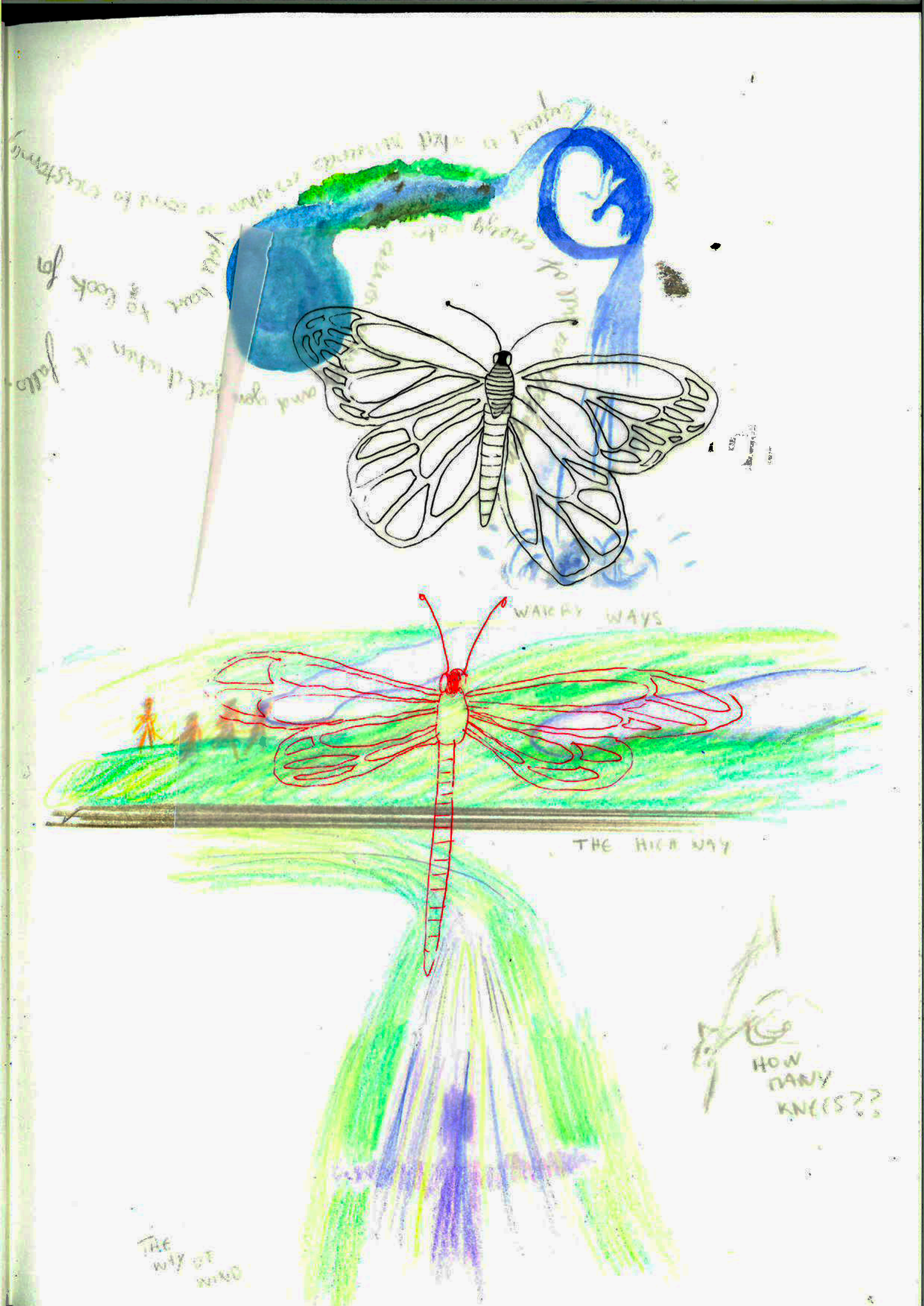
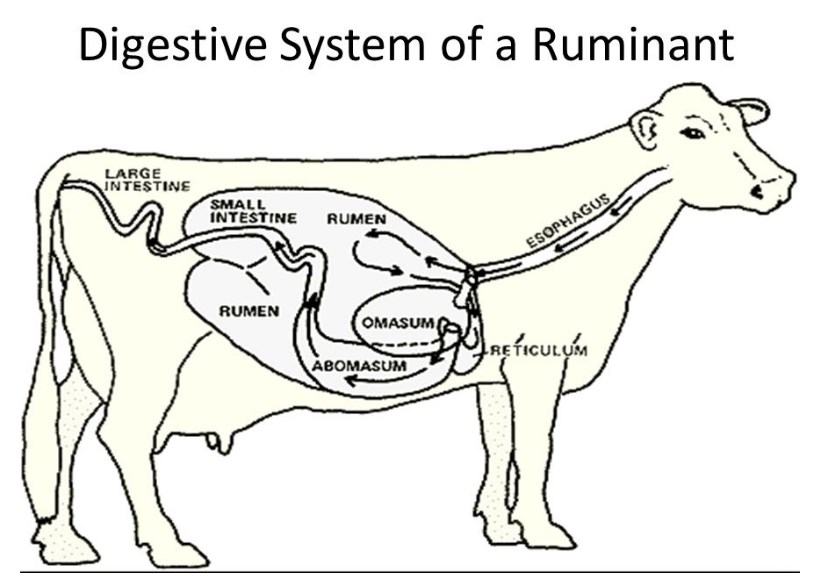
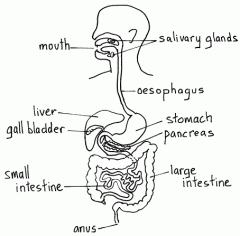
Trusting your gut is another way of knowing.
Digestion compiles all the transformations food undergoes in the digestive tract before being assimilated. It is a way of unpacking food, protein complexes and why not ideas and concepts. Digestion is always a collective act, even when you are having dinner by yourself, your large intestine is hosting trillions of bacteria helping you squeeze out all the good nutrients out of the food you ingested. Thus, when you eat and discuss together with other people an analogous situation is created, an externalized digestion of a topic together with an internalized embodied experience of the conversation and the food. Collective digestion is nourishing the culture surrounding us and the bacterial cultures in our guts.
Collective Digestion is also about listening
When your body is digesting, you have the main organs doing the breaking down and assimilating of foods. But you also have organs like the pancreas, liver (the liver detoxifies from harmful chemicals) and gallbladder that are there to support and listen to the digestive flow to secrete digestive enzymes (questions) or bile a liquid helping the digestion of fats (moderator).
Digestion is a tool for collective assimilation.
These expressions show how our body also expresses its needs and influences our behaviour. What you eat and how you process it, has an impact on how you feel, act and think. Gastrointestinal problems can cause stress and anxiety and vice versa stress and anxiety makes GI problems worse. The gut is sometimes called the second brain for a reason.
“There is also a lesser known part of our body’s nervous system located in our gut. It’s called the enteric nervous system. The enteric nervous system’s network of nerves, neurons and neurotransmitters extends along the entire digestive tract – from the esophagus, through the stomach and intestines, and down to the anus.
Because the enteric nervous system relies on the same type of neurons and neurotransmitters that are found in the central nervous system, some medical experts call it our “second brain.” The “second brain” in our gut, in communication with the brain in our head, plays a key role in certain diseases in our bodies and in our overall mental health”
Indigestion can also be an interesting tool for resistance. You can be incorporated into the system, exist within it while refusing to be assimilated. To be indigestible means activating and overworking the liver of capitalism, tiredness from the liver is a common symptom, who knows if one day it becomes non functional?
“So, if one longs for recognition and the inclusion of differences and singularities, but does not believe in or agree to being subsumed within neoliberal pluralism, how can one resist? What are the options of queer cultural politics and artistic practices? In addition to the considerations on drag, I would like to introduce the notion of becoming-indigestible.”
“I have a gut feeling ” “trust your gut feeling”
References
P
R
O
J
E
C
T
How to Situate and Practice Study in Ecosystems of Care?
Looking into ecosystems
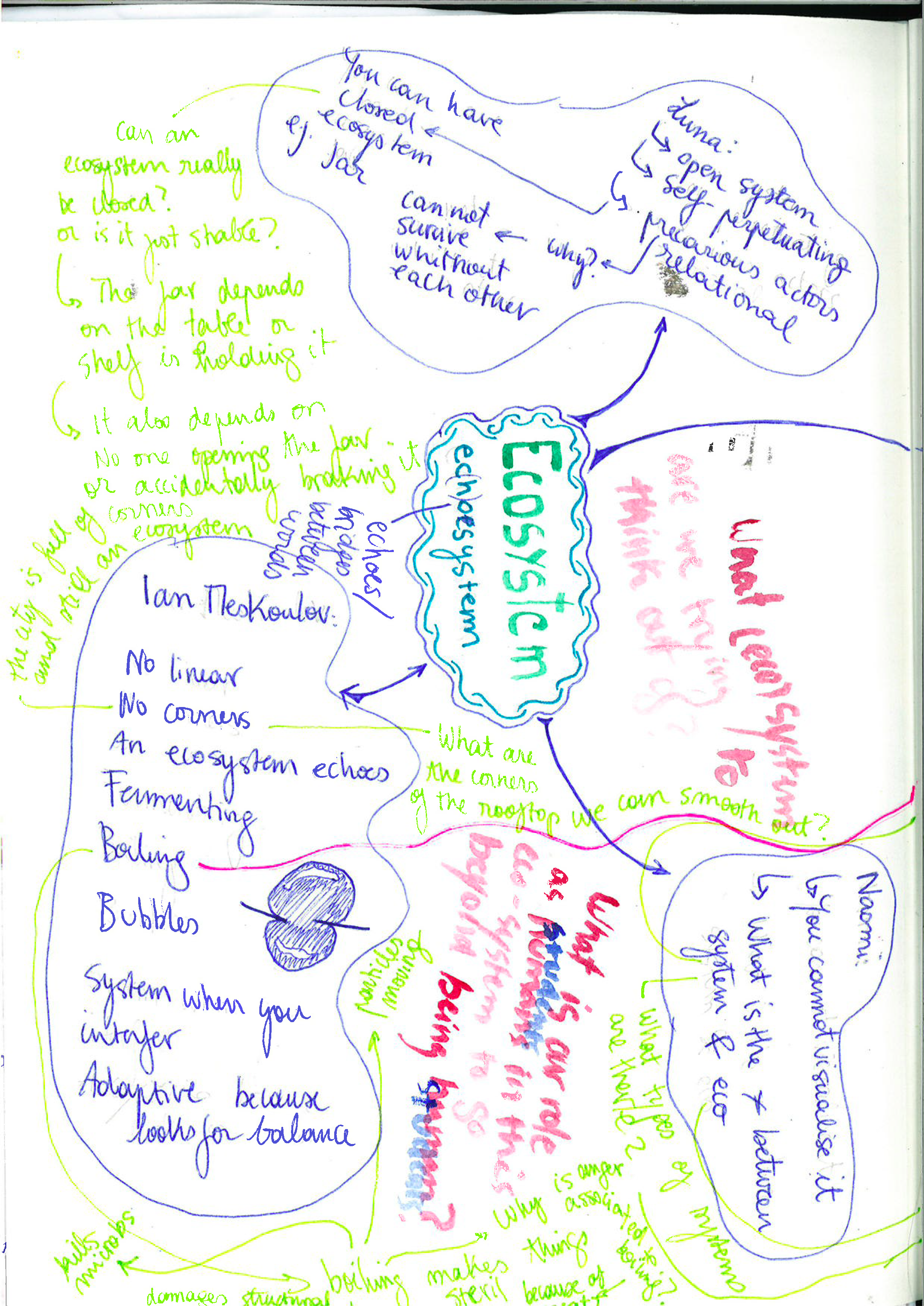
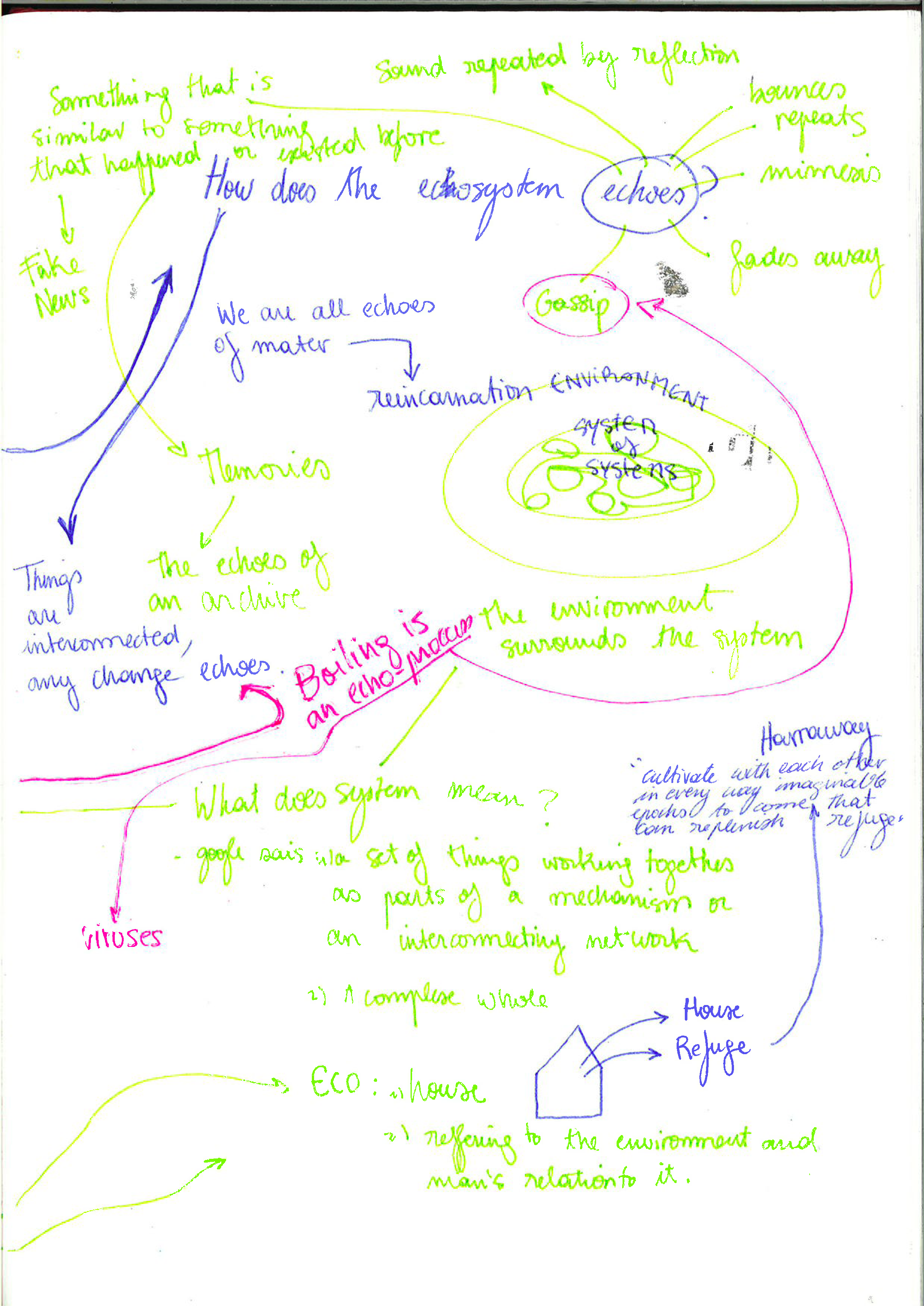
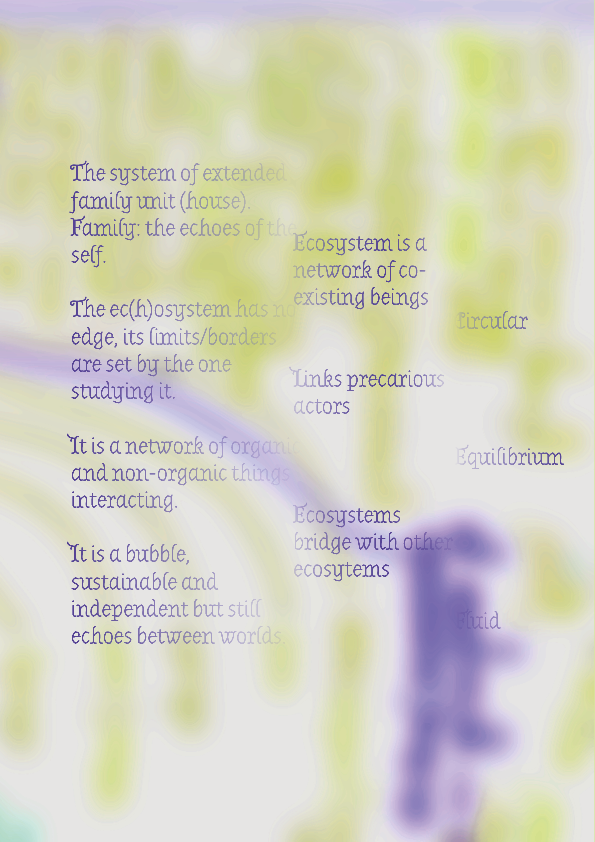
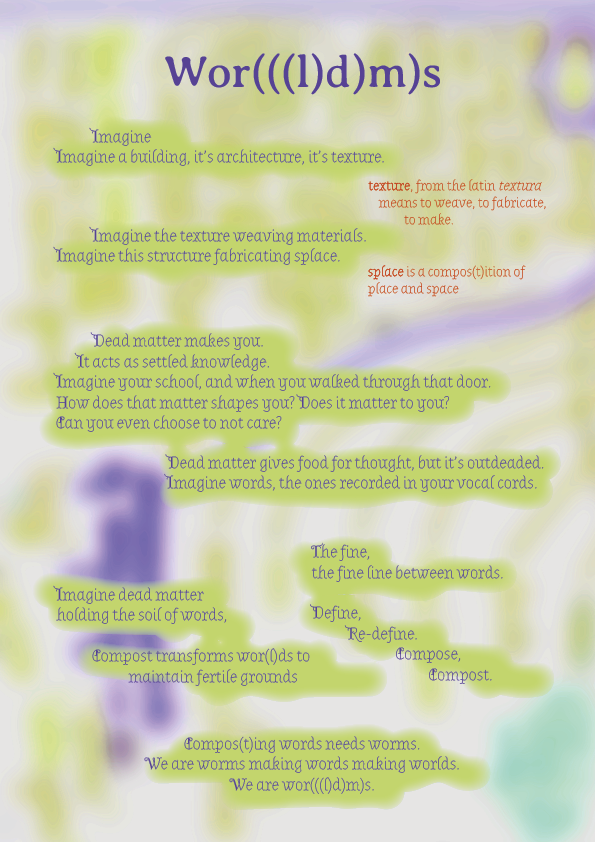

“When I think about the way we use the term ‘study,’ I think we are committed to the idea that study is what you do with other people. It’s talking and walking around with other people, working, dancing, suffering, some irreducible convergence of all three, held under the name of speculative practice. The notion of a rehearsal – being in a kind of workshop, playing in a band, in a jam session, or old men sitting on a porch, or people working together in a factory – there are these various modes of activity. The point of calling it ‘study’ is to mark that the incessant and irreversible intellectuality of these activities is already present. These activities aren’t ennobled by the fact that we now say, “oh, if you did these things in a certain way, you could be said to be have been studying.” To do these things is to be involved in a kind of common intellectual practice. What’s important is to recognize that that has been the case – because that recognition allows you to access a whole, varied, alternative history of thought.”
Fred Moten, The Undercommons, p.110
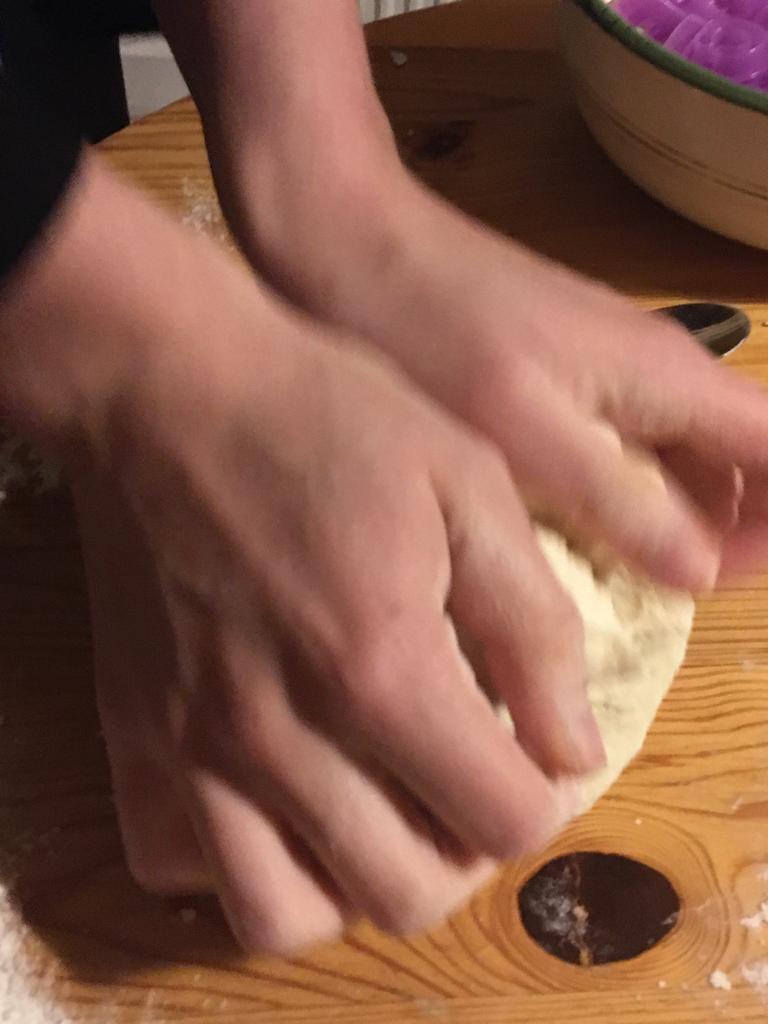
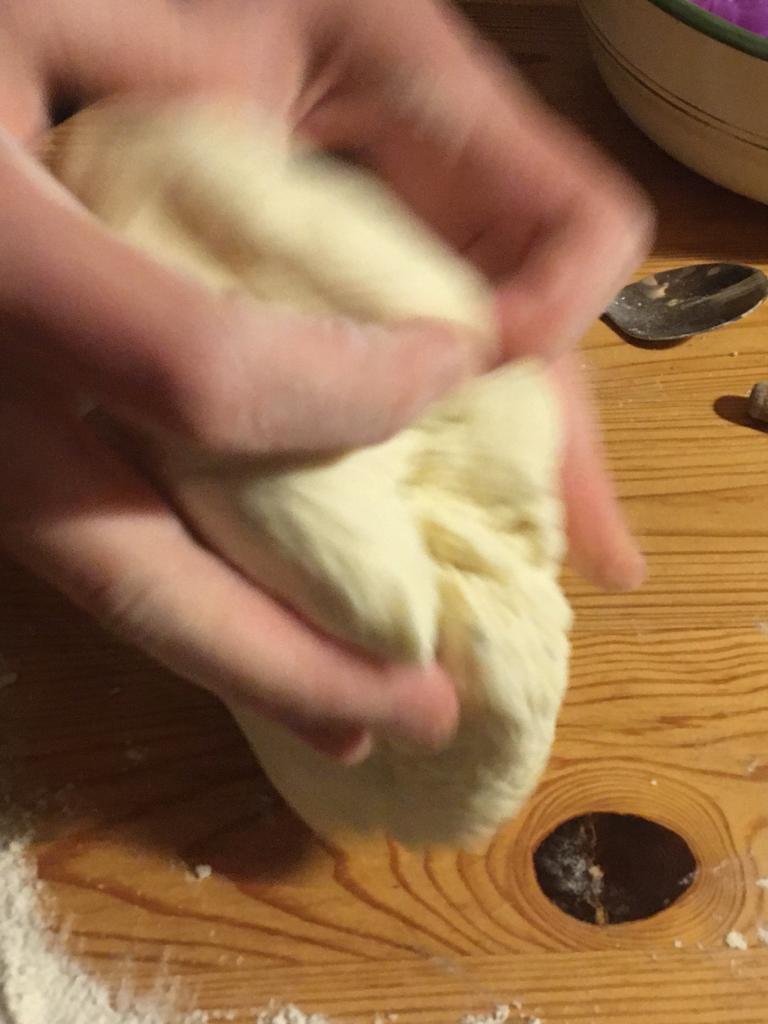
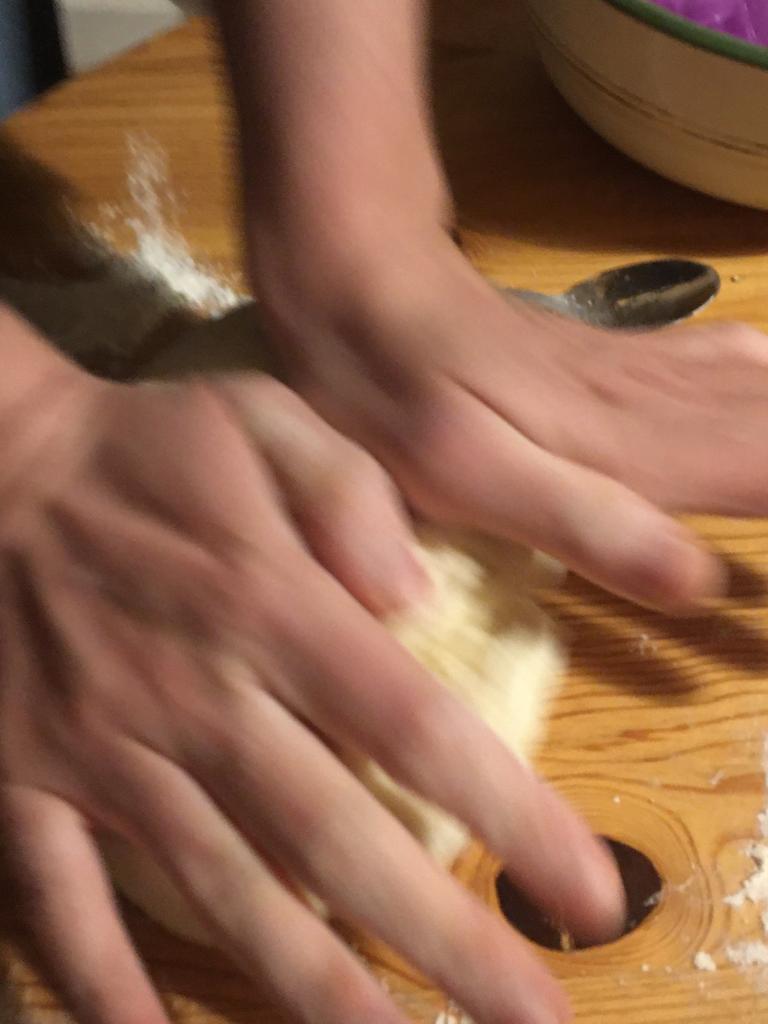
Together with four other lovely beings we have been cooking dinners for each other and developing tools for study. We have created an intimate space of solidarity for sharing and for experimenting with this way of learning together.
We have been digesting
We have been refusing
We have been playing
We have been cooking
Workshop: Alphabet Soup, Re-wor(l)ding Tomorrow
Recipe:
Our utensils
A Cookbook of the Dinners
A cookbook suggests, gives gentle guidelines, and inspires. Fragmentary in nature it does not rely on systems, the instructions it gives are not intended to be normative, they entice rather than enforce. A cookbook can be read in a non-linear fashion, pages can be skipped, the reader is invited to find their own way around the book and decide which parts to integrate and which to ignore. Cookbooks mostly find their purpose in the private sphere of the kitchen, a space where the reproductive labour so often assigned to women takes place. Reproductive labour as such – cooking, cleaning, caring – is mostly taken for granted, it is not remunerated with the wages that characterize the activities understood as labour. Apart from the lack of recognition, persons engaged in reproductive labour are denied the income necessary for self-sustenance in a money-based economy, resulting in a situation of dependence and precarity. We envision the cookbook as a tool to politicize the private and to unravel the inherently political nature of notions surrounding taste, culture, reproductive labour, family, collectivity and imagination.
A glimpse of the book:
Project: Cooking Something Up
During one of our walks we talked about how many stomachs a cow has. Here are some thoughts on digestion as a form of making Kin / intuitive thinking
Visiting the Love Tower
Excerpt from Tomi Hilsee
Kralingse walks
Project: Cooking Something Up
How can walking be a form of refuge in the context of Climate devastation??
Our utensils are words:
A utensil is a catalyst for action
Use a tool for a purpose
Utensils is a form of word(l)-building
Tools allow us to gather experiences
With a tool you can construct, build, shape,
create but you can also break down, unpack, divide
Tools to build tools
A Podcast
Five witches talking about generational trauma, the male gaze, food, digestion, millenials, study, refusal and moreeeeeee
list3n to our go22ip2 here:
Collective Tuffting
Meeting each other on the way
This practice was more-than-bullshit